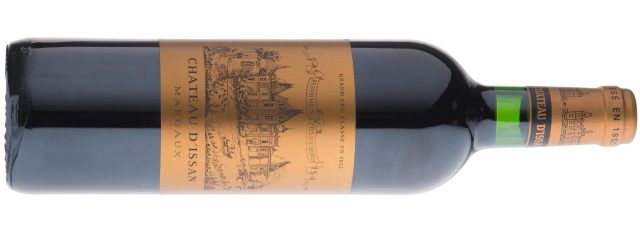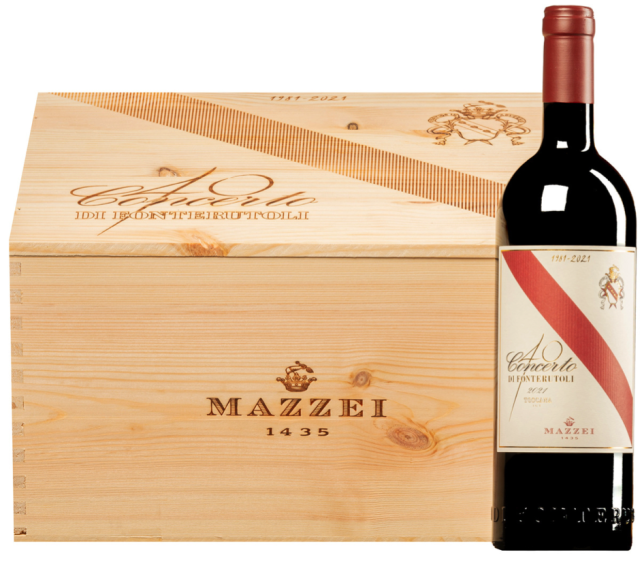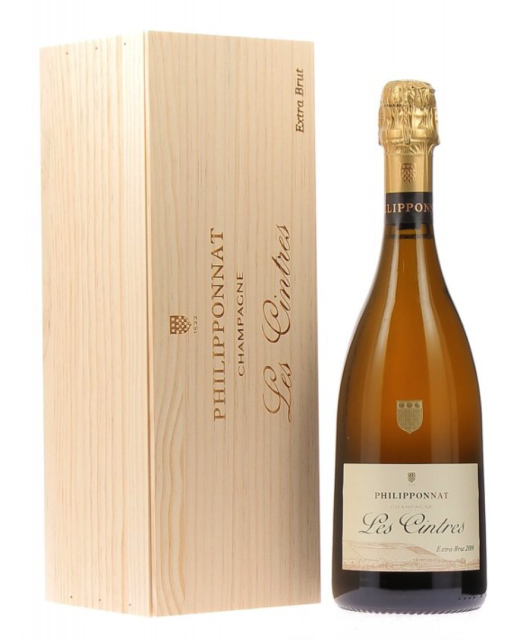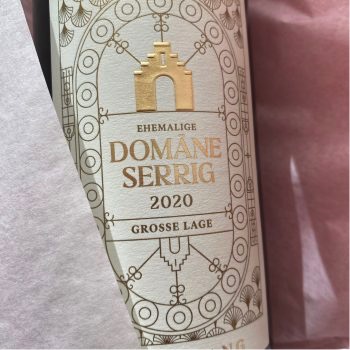This website uses cookies so that we can provide you with the best user experience possible. Cookie information is stored in your browser and performs functions such as recognising you when you return to our website and helping our team to understand which sections of the website you find most interesting and useful.
The 12 Bordeaux days of Christmas: part one
In traditional ‘12 days of Christmas’ style, Bordeaux correspondent Colin Hay chooses a dozen gift suggestions from amongst La Place’s more exclusive new releases. Here are the first six wines.
On the first day of Christmas my true-love (might have) sent to me

The wine: Château d’Issan 2010
Format: A single bottle, yes, but from a gloriously situated Margaux estate on a sharp upward ascent and in a truly great vintage. The perfect Christmas wine, just beginning to enter its sweet spot.
Yours for: Well, this would have been a lot cheaper en primeur but still a comparative snip (at least in the context of this rather covetous selection) at c. £400-450 in bond for a case of 6 bottles (Farr Vinters) … That said, I’m not expecting to find this under any Christmas tree near me any time soon.
Tasting notes: Chateau d’Issan 2010 (Margaux; 60% Cabernet Sauvignon; 40% Merlot; a final yield of just 22 hl/ha; from a singular terroir of gravel over deep clay; 13.7% alcohol). Immediately one knows one is in Margaux – with that lovely combination of Cabernet florality and a subtle sous bois-reinforced herbal and wild heathery element. One thinks of d’Issan as a property now on a steep upward ascent and that is undoubtedly true.
What one tastes here is the sheer quality of the terroir in this exceptional vintage. The narrowness of the frame reinforces the sense of concentration and density – the impact in the mouth of the wine. But don’t be mistaken, this is a subtle, elegant and refined wine of great finesse that will benefit from decanting and that is only now starting to enter its prime. 94.
On the second day of Christmas

The wine: Fonterutoli Concerto (Mazzei) 2021
Format: This comes in a rather snazzy wooden case of 6 (the Italians do wooden cases rather well) or a no less smart special single bottle carton.
Unique selling point: Fonterutoli Concerto’s first vintage was 1981, making it one of the original ‘Supertuscans’ and this its 40th year anniversary release. This is a wine that has been distributed through La Place de Bordeaux since the 2018 vintages, although the first full release was the 2019.
Yours for: For a wine as impressive as this, we’re still not really breaking the bank at £185 in bond for 6 bottles from Ideal Wine Company in Croydon (and just a little more from a variety of London brokers and merchants).
Tasting note: Fonterutoli Concerto (Mazzei) 2021 (IGT Toscana; 80% Sangiovese; 20% Cabernet Sauvignon; from a vineyard at an altitude of 350 metres on a rocky terroir of decomposed limestone and sandstone; 14.2% alcohol). Not the blockbuster you might imagine. There’s a lovely spiciness to this, but it never dominates and it’s not too sweet. Baked and pure plum notes, damson and raspberry, rose petal, pomegranate perhaps too and a sprinkling of fresh tobacco leaf. Clean. Pure. Tender. Focussed and precise, with a lovely flowing and limpid texture over the palate, the product of very fine-grained tannins which act like little glass rollers to convey the fruit. The oak use is nicely moderated. The overall impression here is of a wine that is fluid and lithe, sinuous even. Though it seems to straighten out on the long tapering finish. One is left with a pleasing sense of minerality and lots of freshness. 95.
On the third day of Christmas

The wine: Philipponnat Les Cintres Extra Brut 2012
Format: A single bottle in a rather beautiful individual presentation wooden case.
Unique selling point: This might seem like cheating – champagne in a Bordeaux Christmas? On the other hand, what’s Christmas without great Champagne? … And this is, of course, one of a small but growing number of single-vineyard Champagnes to have been released on La Place de Bordeaux. We have had three releases of Clos des Goisses, but this is the first time that Charles Philipponnat has brought a vintage of the legendary Les Cintres to La Place – as it’s only produced in exceptional vintages (like 2012). Without any doubt, this is the best Champagne yet to have been released on La Place.
Yours for: c. £370, before duty and VAT, from a variety of wine merchants in the UK and continental Europe (though there’s not much wine produced, not much released and if you want a bottle you’re probably well advised to try to snap one up if, as and when you can find it).
Tasting note: Philipponnat Les Cintres Extra Brut 2012 (Champagne; 100% Pinot Noir; dosage of 4.3 g/l; disgorged in June 2022; 12.5% alcohol; 2176 bottles). Tasted with Charles Philipponnat at the property two weeks before its release. From two parcels internal to the Clos des Goisses and made only in the very best vintages from a selection of around a third of the grapes harvested in each parcel – the rest being for Clos des Goisses. A little darker than Clos de Goisses with a hint of the pyramids about it – Tutankhamun gold! This has an amazing natural sweetness – and a staggering richness. It is massive but so structurally fresh too – with the acidity so integral to the personality of this wine.
It is impressively expressive, at this very early stage in its evolution, but with so much more to come. Frangipane; red fruits; mango; a little white peach flesh; walnut brittle; lots of rocky minerality; saffron; roasted langoustine shell; marshmallow; tarte tatin a little hint of pasture; a touch of fleur d’oranger and clementine zest. Incredible complexity aromatically, and incredible layering in the mouth. A wine that combines immense power with incredible energy, freshness and elegance. We are in the presence of rare greatness and majesty. 99.
On the fourth day of Christmas

The wine: Château de Fargues (mixed case)
Format: A limited-edition special presentation case containing one bottle of Château de Fargues 2003 and a copy of the fabulous (and newly-translated) English edition of Château de Fargues: the incredible ambition of the Lur Saluces family in Sauternes (published by Glénat last year).
Unique selling point: Some Christmas reading and a fabulous bottle of one of the very best wines of the appellation in a top vintage.
Yours for: €165, available from a number of retailers around the world, the full list to be found on the Chateau’s website.
Tasting notes: Alas, this is not a vintage of de Fargues I’ve tasted recently, but 2003 is fabulous in Sauternes.
On the fifth day of Christmas

The wines: A mixed case (self-assembled) of Bordeaux blanc sec from Sauternes and Barsac vineyards.
Format: As yet, nothing like this exists as far as I am aware, so your true love would have to assemble the case him or herself. But there are plenty of great wines here to choose from. Together they make a rather good case (no pun intended) for the new appellation for the blanc sec of Sauternes and Barsac that a number of properties have been talking about for a while.
Unique selling point: Well, there’s quite a lot of work involved in sourcing a mixed case like this. So you true love would really be showing you some dedication here. And the gift itself is a fabulous advert for the sheer quality, range and diversity of the blanc sec wines coming from Barsac and Sauternes today. In short, who wouldn’t be pleased to find this under the tree?
Yours for: Let’s put this together, as your true love might put together the case, bottle by bottle: Asphodèle 2019 (c. £25 in bond, per bottle, Berry Bros & Rudd); Blanc sec de Lafaurie Peyraguey 2019 (c. £23 in bond, per bottle, directly from the property); Le ‘C’ Sec du Château Closiot 2018 (c. £22 in bond, per bottle, from Millésima); Le Sec de Rayne Vigneau 2015 (c. £11, duty and VAT paid, from the property); Suduiraut Pur Sémillon 2020 (c. £88, duty and VAT paid, Wanderlust Wines Ltd); Ygrec 2019 (c. £115 in bond per bottle, Wilkinson Vintners).
Tasting notes:
Asphodèle 2019 (100% Sémillon; just 12% alcohol) – Tasted with Berenice Lurton at Chateau Climens and then again from bottle on two separate occasions with similar notes. Clear. Light and limpid in the glass, with silver and green highlights in the sunshine. Floral and intensely lifted. Like the 2018 only more so, this has a very vertical presentation on the nose. Verbena, nettles, mimosa, hay, marigold (which is in fact one of the biodynamic treatments used in the vineyard). Very pretty, with orchard scents of apple and peach blossom. Delicate, fresh and lively (‘vif’ in French). But at the same time this is rich and powerful – a little more so than the 2018.
A wine with considerable lift and energy, like all the best wines of this vintage. Bright, radiant and intense with a great focus and well-defined mid-palate layering and an almost chewy, slightly spicy finish. Very calcaire and quite crystalline, with the minerality and salinity giving adding grip, focus and definition – and helping to reveal the chiselled structural spine of this wine. Flint and matchbox, crushed seashells, shades of citrus and honeysuckle too. Exudes a sense of harmony and fluidity as this rolls over the palate. Really rather special. 94.
Blanc sec de Lafaurie Peyraguey 2019 (60% Sémillon and 40% Sauvignon Blanc; from just 2 hectares, yielding 5 to 6000 bottles). Fresh and leafy – redcurrant leaves. Lovely acidity. Almost shockingly fresh. Pure and lifted with just a tiny hint of residual sugar but much less than in a wine like Ygrec, say. Crystalline. Chewy calcaire notes. Citrus pressé and tarte au citron, grapefruit and nectarine. Good concentration, gathered together around a very linear core of acidity. Round. Fresh. Top notch. Lovely saline minerality. Very little if any sensation of the oak. Lithe, lean, quite structured and focused. A wine that really makes you believe in the potential for a new appellation of the best of the blancs secs of Sauternes and Barsac. 93.
Le ‘C’ Sec du Château Closiot 2018 (Bordeaux blanc; not quite but almost 100% Sémillon, with a little Muscadelle and Sauvignon Blanc; largely vinified in oak barrels, around 25 % of which are new; 14% alcohol). Made by Burgundy superstar Jean-Marie Guffens from Semillon in Barsac picked just before the onset of botrytis.
Wonderful and wonderfully different – on the nose, especially, this is just supremely redolent of Macon Chardonnay to the extent that this is the almost perfect wine to wreak havoc in a blind tasting (only the freshness of the fruit perhaps gives away where this actually comes from). Straw bales, beeswax, honey, apricot, peach and pear, a hint of passionfruit, sandalwood, fleur d’oranger and a lovely chalky salinity.
Quite rich and full on the palate, but with a very pronounced central spine along which the fruit is stretched and elongated to a long and persistent finish. Excellent, though the 2020 (tasted in a restaurant in Bordeaux) is better still. 92.
Le Sec de Rayne Vigneau 2015 (Bordeaux; 100% Sauvignon Blanc; 13% alcohol). This still looks incredibly young in the glass, with enticing gold and green highlights. A fascinating and complex nose – candlewax, granny smith apple, fennel seed and aniseed, pink grapefruit zest, confit strawberry and verbena. On the palate this is super-charged with a very fresh and racy acidity yet it’s plump and rich at the same time with impressive layering and an intensity that comes from the relatively slender frame. Bitingly and reassuringly tense and fresh, despite the slightest suggestion of residual sugar. This is aging so very well – and so glacially. 92.
Suduiraut Pur Sémillon 2020 (Bordeaux; 100% Sémillon). Unique in style and rare (the production is tiny). Richer than you might imagine with great density and concentration yet wonderful freshness. Lovely lithe, sinuous and crystalline, this glides over the palate and yet reveals a profoundly architectural sense of structure. I love the finish too – so pure and precise, so clean and, again, crystalline, so long and gently tapering. Asiatic pear. Peaches, lime and lime zest, confit white melon. Ginger. This has a zesty, pithy finish. Little orange blossom notes. Mimosa too – a bit. 94.
Ygrec 2019 (75% Sauvignon blanc; 25% Semillon; alcohol 14.1%; pH 3.15; residual sugar 5g/L; picked relatively early, if not in comparison with the 2020, from August 26th until September 5th). Tasted with Sandrine Garbay at the chateau a week before bottling. Lighter in hue than the 2018 and in personality too, with a striking aerial freshness, levity and verticality. Pure, lifted, lithe and feather light.
This has, from the start, a wonderfully floral lift and zest. Aerial (a word that litters my scribbled tasting notes). Seashells – hinting, straight from the nose itself, at the way in which salinity is an essential part of the structure of this wine. Sappy, juicy and with great definition and precision. The finish is very chiseled and focused. If there has been a subtle evolution of the style in recent vintages it is to accentuate the sense of freshness.
There is in fact just a little more residual sugar than in the 2018, Sandrine Garbay tells me (though it still rounds out to the same 5g/L); but you are less aware of it. Supremely tense and well-balanced. The minerality is so attractive – crushed or powdered stones, mica and that, oh so crucial, salinity again – grains of fleur de sel that seem to draw the wine out over the palate one by one. The freshness and sappiness seem almost to ripple in vying for your attention one after the other. Pink grapefruit, pear or papaya even, mimosa and elderflower. This is superb and deceptively powerful. As good an Ygrec as I can recall. Exquisite balance, tension and freshness with a glorious citrus/saline spine. 95.
On the sixth day of Christmas

The wine: Domäne Serrig Vogelsang Grosse Lage, Markus Molitor, 2020
Format: Available in cases of 3, 6 and 12 bottles.
Unique selling point: The first release of this wine from Markus Molitor’s Vogelsang monopole in the Saar, purchased in 2016 – and now offered entirely through La Place de Bordeaux Indeed, this is the first German producer to release all of its production through La Place. 100 points from The Wine Advocate (and, for what it’s worth, from yours truly too).
Yours for: A case of 12 bottles is yours (well, your true love’s, before s/he removes the price tag) for £1730 in bond from Farr Vintners. The market conditions may not be great today, but I can only see the secondary market price for this wine going one way. In short, now’s not a bad time to buy this.
Tasting note:
Domäne Serrig Vogelsang Grosse Lage (Markus Molitor) 2020 (100% Riesling; from a grand cru vineyard in the Saar; from a legendary estate built by Kaiser Wilhelm II in 1904 on the incredibly steep slate slopes of the Saar river valley; 10 g/l of residual sugar, acidity of 8 g/l; 12% alcohol). 1st release and exclusively via La Place de Bordeaux. A little fuller in colour with a hint of gold alongside the Kabinett’s silver highlights. Wow. Richer, more profound, yet more complex and with spicier and waxier notes alongside the flintstone, slate and whetstone minerality. Yuzu, white grapefruit, white currant, mandarin and assorted confit and preserved citrus notes, saffron too. I love the wild herbal undertones – again, oregano but joined here by lemon thyme, marjoram and a hint of verbena too.
The intensity on the attack is utterly amazing and it takes a moment to hone in on it – it comes as a shock that you can’t quite prepare yourself for, even as you return to the glass. So incredibly tense and intense, almost a little fore-square and with the parameters and extremities of the pure dense compact block of fruit that is at the centre of this outlined by the most gracious and tender of gentle tannins.
Wondrously vibrant, explosively dynamic and alive, charged with energy and a brilliant crystallinity. 10 g/l of residual sugar that is entirely imperceptible (the citrus intensity is so great here that one might be forgiven for thinking the residual sugar were higher in the Kabinett). Quite simply brilliant and utterly unique. Eternal on the finish – the vanishing point is well over the next horizon! One of the most exciting wines I have tasted in recent years. I have goosepimples all over; a wine to heighten one’s senses. 100.

